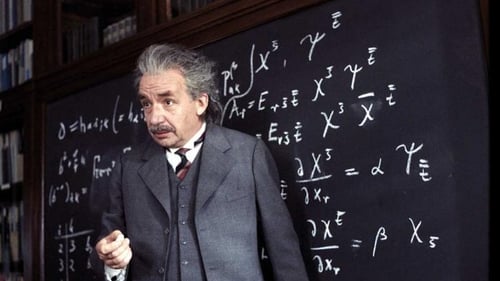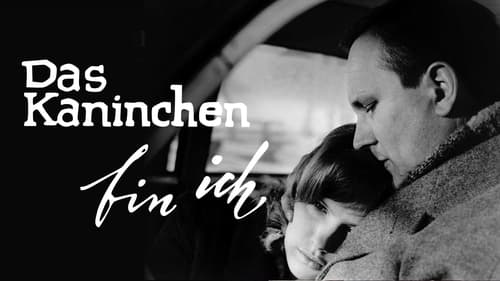Günter Drescher
출생 : 1928-02-23, Bernsdorf, Germany
사망 : 2006-09-05

Two people love each other when they know they should not. Their parents' and friends' pleas, their social backgrounds and reputation, their careers; everything is used to make them give each other up. Flattery, lies and threats finally drive Frank to despair and Karin to treason. But it is not due to their parents' hatred, nor to any greed for inherited wealth. Rather, the mere conjecture expressed by the authorities is enough to set off a merciless mechanism.

Two part movie about Einstein's escape from Germany in 1932 and his influence in the invention of the nuclear bomb in 1939.

Film by Roland Oehme.

1982: East German actor Erwin Gregorek travels to Hamburg to shoot screen tests for a film about the sinking of the ocean-liner Cap Arcona in 1945 - a catastrophe he himself survived as a concentration camp prisoner.

A life-threatening heart attack confines Richard Roth to the hospital bed. There, Richard, who is in his late fifties, asks himself what will remain of him and his life. What happened to his four daughters? Do they take after him? How have they developed? His youngest daughter Nanny, who is still living with her father, gets her three other siblings to Weimar to visit their father.

Three couples want to spend a short break together. Some have a traffic accident, the others are prevented professionally. So the designer Robert and the youth helper Ellen are forced to spend the days in a remote farmhouse alone with her young son. The previously suppressed marriage crisis breaks open. Allegations, confessions, charges, self-accusations are in the room. Painfully, they come to the realization that only their own happiness is responsible for their happiness. With the old landlord, each of them finds himself. In the end, Robert and Ellen want to try a new beginning.

A flamboyant comedy about love, work and money—revealing that the "planned" economy produced some unconventional entrepreneurial methods.

A funny story about fifth grader Ottokar who is always ready to fight for justice.

The Secretary
Biography of Aurel Vlaicu, a world wide aviation pioneer.

The film describes the activity of an ABV of the People's Police in its section in East Berlin. A mixture of “positive” characters from the beginning, the extensively staged “owl”, who is introduced as a criminal and over the course of time, especially due to the influence of the ABV, develops into a good citizen, and incorrigible characters, with whom the ABV fails with its extensive attempts at rehabilitation and who are arrested after having committed again offenses.

Soldier Ignaz Wolz returns from WWI with an immeasurable hatred of capitalist war profiteers. He decides to start his own revolution, but tries to stay away from the organized class struggle. He steals from the rich men and divides the wealth among the poor. One day, Wolz is arrested and sentenced to life in prison; seven years later he is released due to mass protests. More than ever, it is hard for him to fit in. He severs ties with his former companions, who reject his ideas, and leaves Germany.

Taxichaffeur
World-famous geneticist Professor Hülsenbeck is a man of integrity who refuses to mix science and political gain. When his findings are being used to harm humanity, he immigrates to the USA in 1933 in protest against Nazi racial politics.

East German film about the history of Red Orchestra, a real life German pro-Soviet spy ring created after the rise of Hitler that turned into a resistance movement led by a leftist Nazi officer, Harro Schulze-Boysen, and Arvid Harnack.

Film by Ralf Kirsten.

A day before the beginning of the Second World War, a young resident of Bydgoszcz falls in love with a German teenager.

The two-piece black and white movie "Brennende Ruhr" portrays the events during the Kapp-Putsch 1920 in a small german town in the Ruhr district. The main protagonist is Ernst Sukrow, a student who sympathises first with the bourgeois forces but finally decided to join the communists in their fight.

Little Tim Tammer, the son of a lighthouse keeper, lives right on the Baltic Sea beach, but his remote home often leaves him feeling lonely. When Young Pioneers pitch their tents nearby, he is overjoyed and quickly makes new friends.

Polizist
The Rabbit Is Me was made in 1965 to encourage discussion of the democratization of East German society. In it, a young student has an affair with a judge who once sentenced her brother for political reasons; she eventually confronts him with his opportunism and hypocrisy. It is a sardonic portrayal of the German Democratic Republic's judicial system and its social implications. The film was banned by officials as an anti-socialist, pessimistic and revisionist attack on the state. It henceforth lent its name to all the banned films of 1965, which became known as the "Rabbit Films." After its release in 1990, The Rabbit Is Me earned critical praise as one of the most important and courageous works ever made in East Germany. It was screened at The Museum of Modern Art in 2005 as part of the film series Rebels with a Cause: The Cinema of East Germany.













